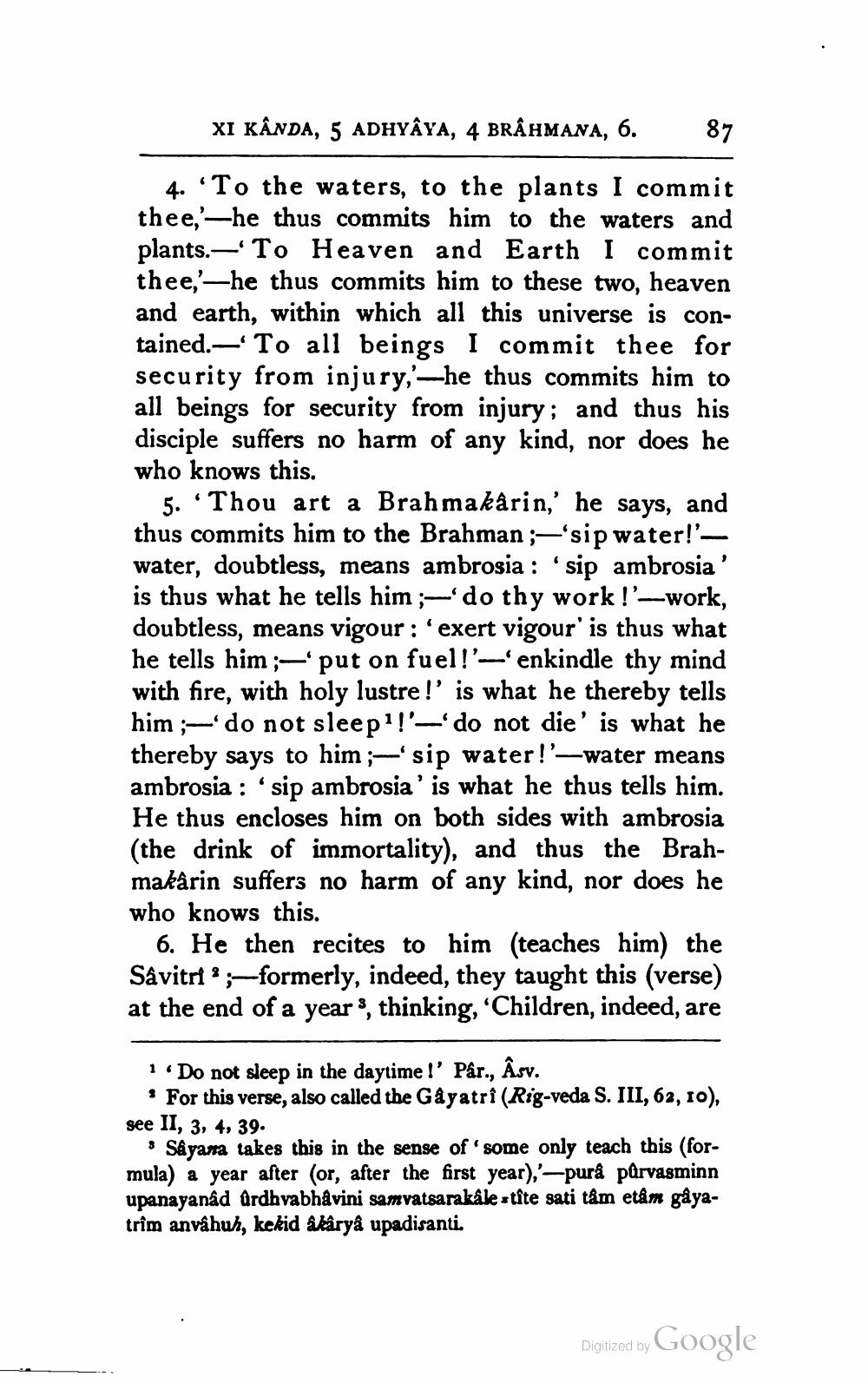________________
XI KÂNDA, 5 ADHYAYA, 4 BRÂHMANA, 6.
87
4. “To the waters, to the plants I commit thee,'—he thus commits him to the waters and plants.—'To Heaven and Earth I commit thee,'—he thus commits him to these two, heaven and earth, within which all this universe is contained.—'To all beings I commit thee for security from injury,'-—he thus commits him to all beings for security from injury; and thus his disciple suffers no harm of any kind, nor does he who knows this.
5. Thou art a Brahmakarin,' he says, and thus commits him to the Brahman ;—'sip water!'water, doubtless, means ambrosia : 'sip ambrosia' is thus what he tells him ;-'do thy work !'-work, doubtless, means vigour : 'exert vigour' is thus what he tells him ;-'put on fuel!'--'enkindle thy mind with fire, with holy lustre!' is what he thereby tells him ;-'do not sleep?!'-'do not die' is what he thereby says to him ;-'sip water!'—water means ambrosia : 'sip ambrosia' is what he thus tells him. He thus encloses him on both sides with ambrosia (the drink of immortality), and thus the Brahmakarin suffers no harm of any kind, nor does he who knows this.
6. He then recites to him (teaches him) the Savitri ? ;-formerly, indeed, they taught this (verse) at the end of a year $, thinking, 'Children, indeed, are
1. Do not sleep in the daytime!' Pår., Âsv.
. For this verse, also called the Gayatri (Rig-veda S. III, 62, 10), see II, 3, 4, 39.
o Sâyana takes this in the sense of some only teach this (formula) a year after (or, after the first year),'-purå pårvasminn upanayanad Qrdhvabhavini samvatsarakåle stíte sati tâm etâm gâyatrîm anvähuh, kekid akarya upadisanti.
Digitized by Google




